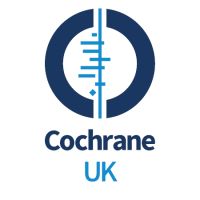
Founded 30 years ago in Oxford, Cochrane UK was Cochrane’s first geographic group. Cochrane now has over 130 such groups across the world, working in-country to support the production, dissemination and use of evidence to guide decision-making in health and care.
In March 2024, Cochrane UK’s current contract with the National Institute for Health and Care Research (NIHR), hosted by the Oxford University Hospitals NHS Foundation Trust, will come to an end. As a result, Cochrane UK will shortly be seeking a new funder and host institution.
Catherine Spencer, Chief Executive of Cochrane, said: “Cochrane UK has been at the forefront of Cochrane throughout its 30 year history and was our first geographic group. Cochrane UK has made an extraordinary contribution to evidence-based health and care, I extend my heartfelt thanks to the incredible team in Oxford – past and present – for all they have done.
“As we look to the future, there is an exciting opportunity for a new institution to host Cochrane UK and help more people to benefit from health and care evidence. We will be reviewing what is needed in the UK before we begin a selection process. But I would encourage anyone interested in hosting Cochrane UK at their institution to get in touch with me in the meantime.”
Last November it was announced that in September 2023, Cochrane UK’s Director, Martin Burton, will be moving to Cambridge to become Master of Sidney Sussex College. This summer, Therese Docherty will take on the role of Acting Director, having managed Cochrane UK’s operations for nine years.
Catherine Spencer said: “Martin’s exceptional leadership at Cochrane UK has been truly inspiring. His dedication to advancing evidence-based healthcare and improving patient outcomes has left an indelible mark on our organization and the broader medical community. He has shown a peerless talent for fostering collaboration, supporting people and driving impactful work. As he embarks on the next chapter, we extend our heartfelt gratitude for his invaluable contributions and wish him all the best with his new role.”
Martin Burton said: “I have thoroughly enjoyed my time as Director of Cochrane UK, in particular for the opportunity it has given me to work with an excellent team here, and with so many wonderful Cochrane contributors in the UK and around the world. Cochrane UK is in safe hands and I look forward to hearing more about Cochrane’s future plans. The world needs high-quality evidence in general, and synthesised evidence in particular, now more than ever before. These are exciting times as Cochrane adapts and flexes to meet the new challenges ahead.”
